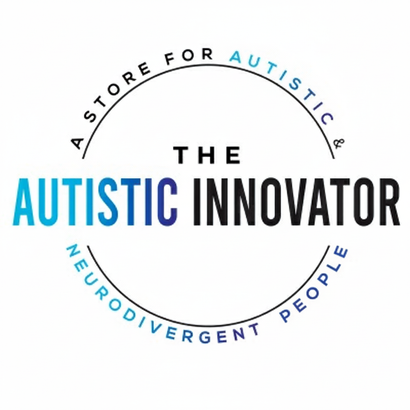Many of us autistic adults wonder if it’s worth it to get a diagnosis and what comes after the autism label.
There are many facets to what you can do after you realize you are autistic, or after you get an official diagnosis.
Let’s start with a few common questions about getting an autism diagnosis.
Can Adults Be Diagnosed with Autism
The answer to that question is yes, adults can be diagnosed with autism.
We don’t have to be children or teenagers in order to receive a diagnosis. It can happen at any age.
Autistic kids grow up to be autistic adults, after all.
Can You Develop Autism in Adulthood
Many have speculated about what causes autism, from crazy theories about vaccines causing autism up to realistic reasons like genetics. We may also wonder if adults can develop autism later on in life.
According to a study on NIH.gov, “Scientists believe that both genetics and environment likely play a role in ASD.” The NIH fact sheet says, “Environmental factors may also play a role in gene function and development, but no specific environmental causes have yet been identified. The theory that parental practices are responsible for ASD has long been disproved.”
While people speculate autism has environmental causes, no one actually knows what in the environment could cause someone to be born autistic, or if there even are environmental causes to begin with. The one thing we know for sure is that autism is genetic.
With what scientists know about autism, we are more than likely simply born autistic.
As adults, we may naturally unmask without realizing it, or we could just notice our autistic tendencies more than we did as children and teenagers.
Is It Worth Getting an Autism Diagnosis
It seems like children are most commonly diagnosed, and we may feel forgotten about once we reach adulthood, so we wonder if it’s worth it to get an autism diagnosis.
Pursuing an autism diagnosis is a personal decision. Some of us autistic folks might feel imposter syndrome without a professional officially diagnosing us, and others will feel satisfied with a self-diagnosis.
It seems as if neurotypicals love to ask after you disclose your autism, “Who diagnosed you?” Which can make some of us feel pressure to pursue a diagnosis so we have an answer to that question.
Benefits of an Autism Diagnosis as an Adult
Within the autistic community, feeling like maybe we aren’t really autistic without a professional diagnosis is fairly common.
Some of us prefer to get an autism diagnosis so we can feel a part of the autistic community.
There are other benefits to getting a diagnosis, such as having protections against discrimination when asking for accommodations in the workplace and in college.
Self-Diagnosis of Autism
Despite what some neurotypicals may say, self-diagnosis is valid.
Psychologists and psychiatrists are expensive, and it can cost hundreds of dollars to get an evaluation for autism.
Not everyone has the financial means to pursue a professional evaluation, and that is completely fine.
We know ourselves better than anyone else. If you feel connected to the community when you realize there are other people out there who are just like you - that is valid.
It may be hard to overcome imposter syndrome when we either choose to not pursue a diagnosis or can’t afford one - you are valid.
What to Do After an Autism Diagnosis
You may ask yourself, “I got my autism diagnosis, now what?”
We can start off by learning more about autism and how it affects us as adults. Sometimes the more we learn, the more we make sense to ourselves.
What is Masking?
When we mask, we are pretending to be someone more socially acceptable.
We become so used to pretending to be someone else our whole lives, never knowing why we are so exhausted and burned out all the time.
Masking takes a lot of work and effort, and we may not realize we have been doing it all these years.
There may be a time when we decide we are done pretending and we want to learn how to unmask.
Discovering Who We Really Are Behind the Masking
After spending our lives masking, it can become intimidating trying to figure out who we really are.
It can feel as if we are reverting into an autistic child and appearing even more autistic. Some of us may feel we are becoming more autistic just because we received a diagnosis.
As we unmask, we have to learn who we really are so we can craft a life that is uniquely ourselves.
It can be worth it for many of us to begin the process of self-discovery.
Embrace Stimming
Our stimming preferences can be part of who we are. Stimming is when we engage in repetitive behaviors that allow us to self soothe and feel more calm.
We can use products that allow us to fidget in order to calm ourselves.
There are many options, such as spinner rings, fidget spinners, chew necklaces, and so forth, that we can use to calm ourselves and give us the repetitive movement we need.
Some of us also like to visual stim by looking at colorful lights or moving patterns because we find it calming.
Stimming can be an important part of being autistic because it helps us prevent sensory overwhelm.
Accepting Yourself
Learning to accept ourselves after an autism diagnosis can be the most important part of embracing our new label.
We may feel euphoric upon learning we are autistic because suddenly we make sense to ourselves.
Our childhoods, teenage years, struggles we’ve had, things we’ve had to overcome - it may all make sense to us now.
It may feel freeing to know that we are not alone, and that there are others like us out there.
Accepting our autistic selves may just be the most important thing we can do.


